For a Free E-mail subscription to this newsletter, click below:
.
Welcome to the one hundred eighty second issue of Books for Readers. It seems like a very large number!
This issue begins with a guest review by Belinda Anderson of an excellent collection of essays called
Walk Till the Dogs Get Mean: Meditations on the Forbidden from Contemporary Appalachia.Best title ever. We also have reviews of books by Troy Hill, Charles Dickens, Frederick Busch (his novel about Dickens), by Marie Houzelle, and Mitchell Jackson, among others. Also, Don't miss
Rita Sims Quillen's piece on learning (successfully, I might add) to use social media in her literary life or a poem by
Phyllis Moore. There's also a special money saving offer that John Birch has found for us in his regular column,
The E-Reader Report. Finally, I have a request from a friend for someone who might be interested in trading in-process manuscripts for mutual reading.
Please
write with your suggestions and reactions:
Walk Till the Dogs Get Mean reviewed by Belinda Anderson
It can be challenging to make essays charismatic, but shortly after starting
Walk Till the Dogs Get Mean :Meditations on the Forbidden from Contemporary Appalachia ( edited by Adria
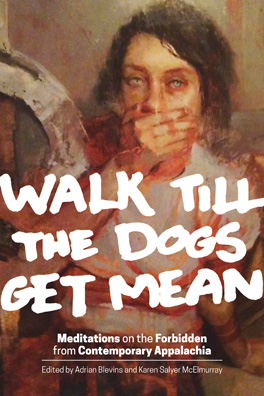
n Blevins and Karen Salyer McElmurray, Ohio University Press), I was slain in the spirit by Silas House's "The Forbidden Gods." He engaged me right away with plain but telling detail such as "her stockings produced from a plastic egg." (How did he remember that? I had forgotten those.) Zooming me back to a certain time were other telling details, such as his mother's hands snagging on her hosiery, "causing small tears she repaired with dabs of clear nail polish." All that remained to totally hook me was this metaphor: "…prayers eating their ways through the ceiling ..." His experiences as an Appalachian targeted for prejudice resonated with me: "A whole lot of Americans have bought into the media's portrayal of the rural dialect to equate to ignorance, racism, homophobia, misogyny, outright stupidity."
In the essay "Confessions of a Halfalachian," Mary Crocket Hill writes, "What culture in the current age of hypersensitive political correctness is it still acceptable to mock? Hillbillies, of course. The same person who would never think of making a rude remark about someone else's race or religion has no problem telling a West Virginia joke." Richard Currey offers similar sentiments: " … one way of maintaining Appalachia's status as an impoverished sideshow of American life has been through humor. … it is more than a passing note that Appalachia continues to hold the lead for a demeaning brand of humor where incest, bestiality, sodomy, and single-digit IQs are the core (and apparently only) subjects of humor. … the wider stereotyping of mountain people seems to persist."
And then there's the challenge of being an outsider within Appalachian. I expected to read about race, about LGBT issues. But what I hadn't expected was to be thrust into a backwards time warp reading in "Outsider Appalachian" about how Melissa Range grew up being derided for displaying what she was learning, for violating the perceived offense of putting on airs.
The book's title is taken from an essay by Jessie Van Eerden. She sets the stage: "I walk till the dogs get mean, far up the road through the little houses in the black trees, past the trailers pinned with lattice and past the cinder block ruins. The dogs come out of the shadows – part pit bull, all mange, different color eyes, no collar, no chain …" Later in the essay, she writes about how her marriage had fallen apart and she found herself writing on a scrap of paper, "Walk till the dogs get mean then walk a little further. …" She adds, "This metaphor is not a neat one. The dogs aren't neat symbols for things that terrify me and clamp me down ..." But I found it a neat metaphor, a call to courage for Appalachians, for anyone facing barriers: Walk a little further.
Myxocene by Troy Ernest Hill reviewed by MSW
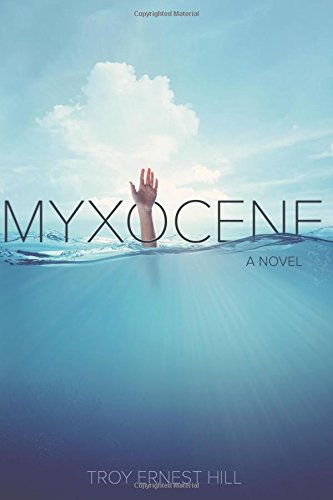 Myxocene
Myxocene by Troy Ernest Hill is a speculative fiction novel set in the very near future, or perhaps even the present. It is a kind of medical/neurological thriller, only instead of the conventional thriller's constant upping of the danger ante (the narrator's daughter, for example, never gets kidnaped by the bad guys), the tone is more wryly humorous than frightening. The bad guys are not entirely bad–indeed, they can be fairly convincing. Part of the pleasure of this novel is following the arguments about how to and whether to stop the coming population growth and concomitant mass suffering from global warming. Should we– rationally speaking– commit suicide as individuals and a species? This would be a wonderful book choice for a book group that likes to talk about ideas.
At the same time, balancing the ideas, is the inner life of the first person narrator, a woman who writes free lance copy for Big Pharma companies. She has been many things in the past, including an actor and director. Presently, she is a single mother who has to deal with a grumpy eleven year old and an irritating evangelical Christian mother who can't bear the narrator's atheism and sexual freedom. My favorite minor character is an ex lover who is an attractive but rather sweetly narcissistic actor who wants to get involved in his daughter's life, but blows his one chance because a casting director from New York shows up at the last minute.
The people on the bad guy side are scientists with some experimental pills that can erase traumatic events from our brains and cause us to become frightening clear in our thinking, able, in fact to embrace the idea of suicide as a constructive choice. There is one superb scene towards the end– the classic crisis– when the narrator coolly weighs whether the life of someone she loves should be saved or not–does the person in danger have any redeeming social value, as it were? Chilling and believably done, and very dramatic.
Troy Ernest Hill has a way of looking at the world that is sharp, well-observed, and just a fraction off plumb in a way that is endlessly entertaining. See Troy's website at
http://www.troyernesthill.com/
Special Notes for Writers About Using Social Media for Publicty by Rita Sims Quillen
Rita Sims Quillen is a poet and novelist. Her novel, Hiding Ezra
(reviewed below), is set during WWI in southwest Virginia. Published by Little Creek Books, Hiding Ezra
has the unusual history of having sold as well its second year as its first. This is remarkable in an industry where novels 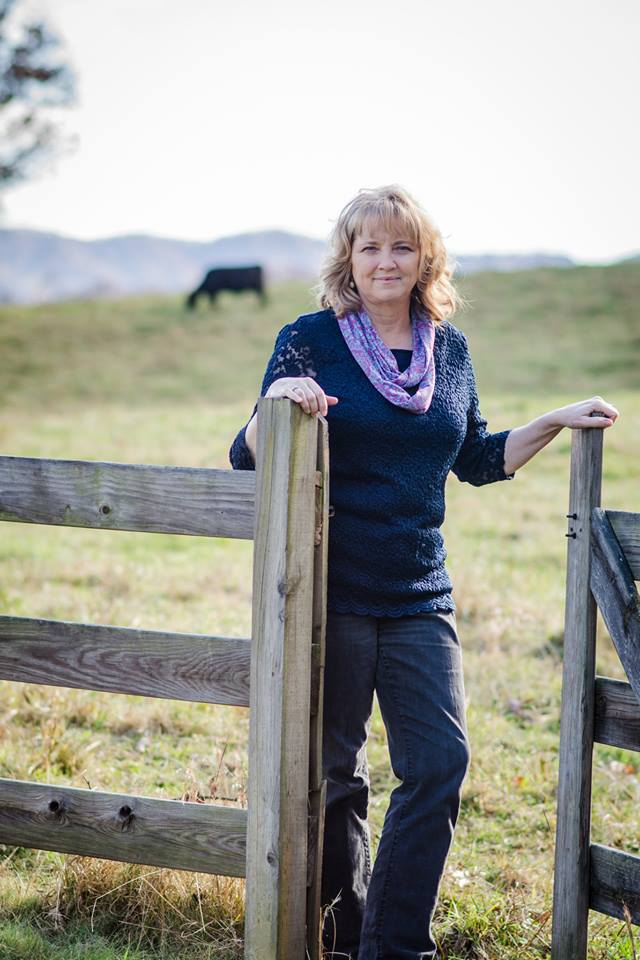 are said often to have a shelf life shorter than yogurt.
are said often to have a shelf life shorter than yogurt.
Rita Quillen writes here about the experience of publishing her novel:
"When I came to the heartbreaking conclusion that I was never going to get my novel Hiding Ezra placed with an agent or academic press, I knew that I was undertaking a journey where I'd be a stranger in a strange land– a poet peddling a novel. But I was determined to do all I could to get my story read by as many people as possible, given the very real obstacles I would face.
" I knew that social media was my only means to find readers. Neither I nor my small publisher could come up with a big advertising budget or afford to buy reviews from all the usual "big league" literary sources. So I used Squarespace (
http://www.squarespace.com/) and created a decent website, created an author page on Amazon, created an author Facebook page and a Goodreads author site. I review others' books there and I also blog on Goodreads. I learned to tweet, and have about 1000 followers now!
I'm on Instagram as well. I also found that book giveaways are good promotion. I gave away a couple of copies each on Goodreads, Amazon, and on my FB author page.
"To be effective in using social media to promote your writing or any other creative endeavor, it's got to be more than an electronic billboard. You have to be interesting, engaged, real, funny, humble, grateful—if people like you, feel comfortable, are curious about you, if they sense you are interested and engaged with THEM, they will want to read your writing or listen to your music or whatever it is you do. In other words, you will have to devote some time to it and make yourself available and vulnerable, to some extent. It has worked for me pretty well."
TRADE MANUSCRIPT READINGS?
Is anyone looking to trade manuscripts with a long time professional journalist who is writing a first novel? The journalist is looking for someone to do a straight-through reading of a manuscript in digital format for story line, pacing, etc.– not line editing! In return, the writer will do the same for you. If you're interested,
e-mail MSW for an exchange of e-mail addresses.
MSW makes no promises or representations beyond what's detailed above!
VICTOR DEPTA ON BLAIR MOUNTAIN PRESS AND BOTTOM DOG PRESS
Victor Depta writes, "We at Blair Mountain Press recently published Poems: What Love Is, in which I attempted to re-create the sound of the voices from my home country of southern West Virginia. Earlier on, we published Azrael on the Mountain, my poems in protest of mountaintop removal coal mining, again in voices from our Appalachian coal fields.
"Now Bottom Dog Press (P.O. Box 425, Huron, Ohio, 44839
http://smithdocs.net) has published
Voices from the Appalachian Coalfields, interviews with coal miners from southern West Virginia in the 1970s and 80s....
"I was very much moved by the book. Not only were the people interviewed from my area of West Virginia (I'm from Logan County) and a period of time in my life when the issue of mining was intense (I was writing A West Virginia Trilogy in the 80s), but several of my other books have people from that world as speakers (Plays from Blair Mountain: Four Comedies and Mountains and Clouds: Four Comedies).
" My thought was, and my hope is, that the voices in my books are nearly as authentic as those collected by the Yarrow family.
"Voices from the Appalachian Coalfields is listed on amazon. All Blair Mountain Press books are available from the Press and from amazon. "
SHORT REVIEWS
(by MSW unless otherwise noted)
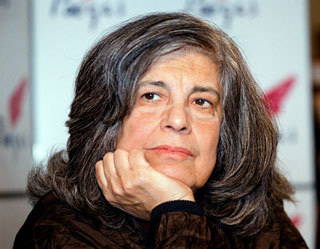
I am considering using Illness as Metaphor by Susan Sontag in a class on Literature and Medicine. It's a famous book, published in 1978, but really more of a treatise than a book. Or, better yet, an essai of the type Montaigne wrote: loose in style, with lots of quotations from literature and philosophy. In the end, like Montainge's essais, it is highly personal.
Sontag was herself recovering from cancer when she wrote it and feeling, I surmise, that her suffering and experience were being misused in media and the culture at large. She handles this with high intellectual flair and an insistence that metaphors for disease cut at least two ways: they express the speaker or writer's thoughts with a powerful image, but at the same time, they twist our thinking about the disease and damage the lives of real human beings.
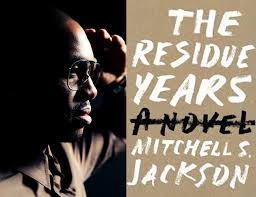 The Residue Years
The Residue Years by Mitchell S. Jackson feels like autobiographical fiction even though the words "a novel" are crossed out on the cover. I began less drawn in than admiring of the language and how it enhances and uplifts the energy and poetry of street dialect. I did some light research afterward (reviews in the NYTimes and elsewhere) and found out that the book is, in fact, highly autobiographical, that Jackson did go to jail for selling crack, that his mother was addicted to crack. That he has in recent years visited his old prison (where people he played basket ball with are still incarcerated).
Some of the chapters seemed repetitive in the action covered, as they switch between the main characters, the mother and the son, but the longer I read, the more its music drew me, and its strong structure. It begins with a prologue (Champ in jail, Mom visiting) and then goes back to the time before this crash. It is in many ways a love story between a son and a mother, and between an older brother and his youngers. Champ endangers his love relationship, his freedom, trying to buy a house where his family was once happy, and is swindled by a sleazy white real estate dude.
There's one oddity, which is that the book-- the novel-that's-not-a-novel-- has a sadder ending than Jackson's actual life, which is much more productive and happy. Are we expected to know the real life story in order to get the full juice from the book?
Interesting in any case, and stunningly rich language.
Hiding Ezra by Rita Sims Quillen is another family love story, in this case set among mountain farm people in the early twentieth
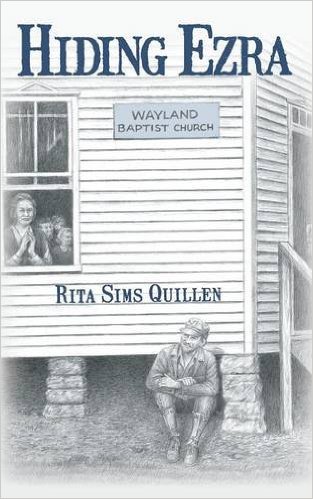
century in southwestern Virginia--Scott County, just over a couple of mountains from where my father's people came from in Lee County. The folkways described--the quilting and selling quilts, the shooting a rabbit and cooking it for lunch on the trail, the descriptions of the landscapes, especially the mountains-- are all beautifully done, but the real strength is the story, which is different from anything I've ever read.
Ezra Teague, the main character, is a griendly, social, well-regarded young man who goes into the army to train to fight in World War I. Pegged as an excellent marksman and possibly slated for special duty, he deserts when his mother dies. His disabled father and widowed sister need his help, so he chooses family over patria, and hides out in the hills, occasionally coming down to chop wood or put a metal patch on the roof of the family home. In return his sister brings him bundles of clothes and other necessities. We learn her sad story of loss, and we meet the woman who loves Ezra.
The story covers two years of Ezra's hiding. His choice is largely supported by the community, even though there is a $50 price on his head. How he comes back to join the community is the main thrust of the story.
Interestingly, the epilogue is not a happy ending in this book either. Ezra and his beloved marry, but she dies with that brutal suddenness of illness in past centuries. We are thus reminded that this is not romance, but a real story of real people and the real tensions between family loyalty, community loyalty, and relationships to a distant government.
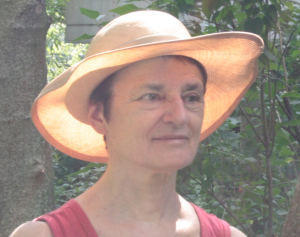 Tita
Tita by Marie Houzelle is a small delight to read. A reviewer on Goodreads spoke of the sense you have of being drawn into French culture, which I'd agree is a large part of the pleasure-- feeling like you're learning something from the inside out. The main character is the precocious little girl Tita, who lives with her little sister, her frivolous fashionista mother, (who turns out to be afraid of having her lower class roots show), and her father, older and divorced. He worries about his business failing. Meanwhile Tita and her little sister have older half-sibs who live in Paris and are super cool to the little girls, and the older sister makes close friends with the second wife, Tita's mother. The father's family is traditional--Catholic school for the girls even if it isn't a very good school. Real struggles, but all told with a light touch, and
très français.
What to say after reading
David Copperfield once again? It's the whole Dickens ball of wax: So much sentimental feeling, so much invention, so much vindication of the suffering of young people, the wonderful Phiz illustrations, and so many memorable characters. There are the awful, soul destroying Murdstones, the inimitably 'umble Uriah Heep. Noble Dan'l Peggoty, the awful child-wife Dora, the magnificently dramatic and impecunious Micawbers, David's friend Traddles, the tragically flawed Steerforth
I read it on my Kindle (free or almost free!), forgetting for a while it was a triple decker--vast number of pages, over 800. I also had my old hard copy available for the illustrations and a sense of how massive it was. There is also a lot to deplore in Dickens: especially his disapproval of women's sexuality, but I just can't help smiling at the momentum and the cornucopia of people tumbling through the pages.
While discussing Dickens, I ought to mention that I also read a book called
The Mutual Friend by Frederick Busch, which fictionalizes the last days of Dickens, particularly his famous public Readings, which were extremely lucrative and also devastating to his health. The idea of this book is that the story is being told by DIckens' assistant for the Readings, George Dolby, who is dying of TB in a charity ward, writing his memoirs and drinking too much, thanks to the ministration of an orderly. The
NYTimes review agreed with me that it is admirably written but too static-- a series of set pieces. Some of the point of view characters, namely the women but also the attempt at Dickens' own voice seemed to me to be an exercise in high quality padding–padding with carefully written sentences, highly polished, etc. Ellen Ternan, the actor and Dickens' great love, is imagined primarily as a sexual being. This seems to be the specialty of a certain type of male writer: to expropriate the voice of a woman, and then imagine her as wanting the kind of sex the writer likes. An interesting premise, but too writerly for my taste.
Two Old Science Fiction Novels: Favorites of mine when I was fifteen:
The City and the Stars by Arthur C. Clarke captured me when I was in high school. The writing isn't terrible, but like a lot of other science fiction, it speeds up towards the end, in this case with a lot of quick trips around the universe that feel thinly imagined and written.
In the end, the most famous science fiction isn't really about people but about ideas. This one, published in 1956, has the usual casual sexism of its time, but it isn't space cowboys shooting at each other. What is beautifully imagined is the City and ditto a few non-human creatures. There's a lot to like, but also that vaguely insulting science fiction tendency to speak about Man meaning all of humanity–I'm not speaking here of sexism particularly, but of the gall of speaking for all of us. The strokes are broad too, everything done a little too quickly, too little explained. Maybe that's just Science Fiction of the nineteen-fifties. I remember, though being uplifted by the whole idea of humanity's destiny of "reaching the stars."
I looked up Arthur C. Clarke on the internet. He is, of course, the author of 2001: A Space Odyssey, a closeted gay guy, which is perhaps why the best (only?) remotely human relationship in the book is between two young men.
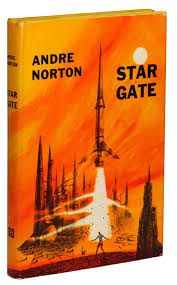 Star Gate
Star Gate by Andre Norton was my absolute favorite science fiction novel when I was in high school, and this one holds up pretty well, although this one too speeds up the action toward the end.
I'm now, in official old age, drafting a prequel to The City Built of Starships. Anyhow, I didn't have very high hopes for this re-reading of Star Gate. I was afraid I would find it unbearable, the prose awful, etc.-- and that I would have stolen everything from it! But it turns out to be pretty cleanly written, with the caveat about the final quarter. Also, it is probably at least as much sword and sorcery fantasy as science fiction.
I had a wonderful time picking ou the bits I stole. It is a bildungsroman, a young person setting out on a search /quest /adventure, encountering secrets about his origins. There are interesting indigenous life forms. I especially liked the mords, the hero's hunting "pet," a big headed four legged dino-bird, a prototype for my own flying dragon pterodactyl yaegers. There are two suns, the servant class are called "hands." Oh, my novel just flatters the heck out of this one with my little borrowings and imitations..
Anyhow, the first three quarters was delightful, and I had forgotten the alternate worlds conceit in which you can conceivably meet a corrupt, hateful version of your own ethical self. I'm happy I still liked it, and also happy to see that while it influenced me a lot, my book was still my own.
JOHN BIRCH E-READER REPORT: WANT TO UPGRADE YOUR E-READER? TIME SENSITIVE!
If you've got a Nook -- Barnes & Noble's successful response to the Kindle -- and are in the market for an upgrade to your e-reader or tablet, take a look at some of the substantial offers and trade-ins B&N are making in February.
For a limited time, B&N are offering a $50 reduction for all nine of their Nook e-readers, and $50 off the price of their range of Samsung Galaxy tablets. For example, their Samsung Galaxy Tab 4 Nook 7 is reduced from $139.99 to $89.99, and their top of the range Galaxy Tab S2 Nook from $349.99 to $299.99.
These offers end on March 5.
READ AND LISTEN ONLINE
An interesting interview with a young professional pianist (who happens to be my nephew!), Alex Kato Willis. He does classical improvisation, something very unusual today, although Mozart and Beethoven excelled at it. Click on the radio show, then move in to the 35 minute mark to hear it.
John Birch has been running a blog for the past few years, and it now contains several dozen of his fiction and nonfiction stories, many of which have been published here and there in the U.S. and Europe. See it at www.JohnBirchLive.blogspot.com. His latest post is "In the Dark."
Barbara Crooker's poems are updated often on her website.
Ingrid Hughes's blog has a story of one woman's journal through serious mental illness.
ANNOUNCEMENTS, BOOKS RECEIVED, CONTESTS, WORKSHOPS, READINGS AND MORE.
Chela: The Adventures of Jack and Ty is in part a tribute to one of the greatest writers and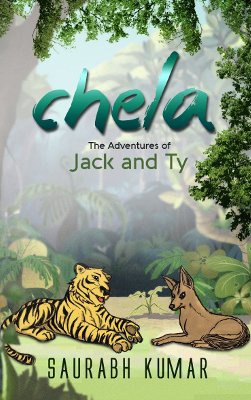 humorists of the twentieth century, Sir P.G. Wodehouse, and a spoof on the fantasy genre where anything and everything can happen at any given moment and time. Jack is a hungry jackal, booted out of his clan for being lazy and incapable of providing for himself. One night while wandering a patch of forest he accidentally steps on the tail of a tiger that is understandably furious at the jackal. The tiger Ty, confronts the jackal with the latter begging forgiveness. The commotion dies down and they soon go their separate ways. Fate, however, brings them together again and and they soon realize they are both facing a similar predicament – an acute shortage of food. The two strangers soon become comrades and along with Herbert, a cross between a wolf and a pariah dog, set out on a journey through the vast woodland of Baganpore and beyond in search of food. On the way they face perils aplenty in the form of diabolical relatives, cunning scavengers, a mysterious banyan tree and a lake that isn't what it appears to be.
humorists of the twentieth century, Sir P.G. Wodehouse, and a spoof on the fantasy genre where anything and everything can happen at any given moment and time. Jack is a hungry jackal, booted out of his clan for being lazy and incapable of providing for himself. One night while wandering a patch of forest he accidentally steps on the tail of a tiger that is understandably furious at the jackal. The tiger Ty, confronts the jackal with the latter begging forgiveness. The commotion dies down and they soon go their separate ways. Fate, however, brings them together again and and they soon realize they are both facing a similar predicament – an acute shortage of food. The two strangers soon become comrades and along with Herbert, a cross between a wolf and a pariah dog, set out on a journey through the vast woodland of Baganpore and beyond in search of food. On the way they face perils aplenty in the form of diabolical relatives, cunning scavengers, a mysterious banyan tree and a lake that isn't what it appears to be.
Saurabh Kumar, 23 years old, lives in Mumbai. He has a degree in Fashion Marketing and Management from Raffles Design International, Mumbai. He attended the Film, Television and Media Studies program at the University of Auckland, New Zealand and is currently pursuing a Certificate in Creative Writing from the New York University. One of his short stories 'A Red Rose' has been published in an anthology by Penguin India. It is edited by Sudha Mur thy. When not staring at a laptop screen and writing he enjoys reading the works of P.G. Wodehouse and watching the TV sitcom, Seinfeld.
Suzanne McConnell's wonderful story "Neighbors" is now available fromhttps://www.ohio.edu/nor/current.htm . It came out this fall, and there's a podcast coming!
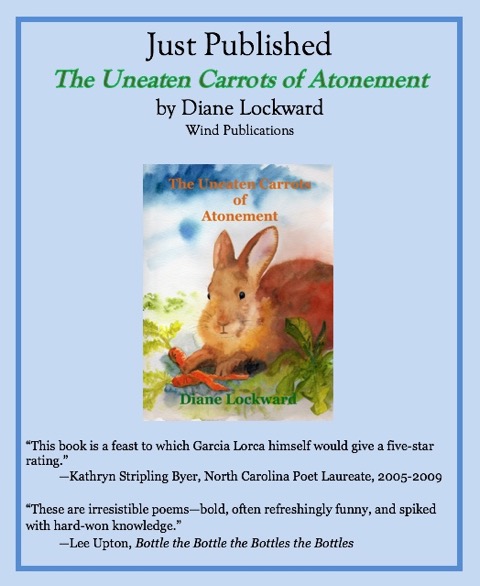
PJ Laska @AWOLanalyst MORNING IN AMERICA "returns American poetry to its avant-garde critical function."
Prairie Schooner Book Prize in Fiction & Poetry Deadline: March 15, 2016 . Prizes Winners will receive $3000 and publication through the University of Nebraska Press. Eligibility The Prairie Schooner Book Prize Series welcomes manuscripts from all living writers, including non-US citizens, writing in English. Both unpublished and published writers are welcome to submit manuscripts. For more information and full rules, see: http://prairieschooner.unl.edu/book-prize?q=submit To submit: https://prairieschoonerbookprizeseries.submittable.com/submit . For questions, email our Book Prize Coordinator at psbookprize@unl.edu
Evelyn Walsh has won the SEÁN Ó FAOLÁIN SHORTSTORY COMPETITION for her story "White Rabbit !" Also see her work in the current issue of The Hamilton Stone Review.
Don't Forget-- A Few Books Recently Reviewed Here:
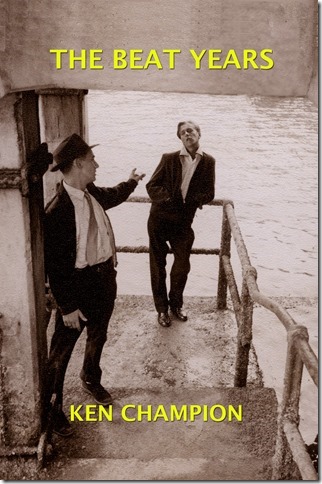
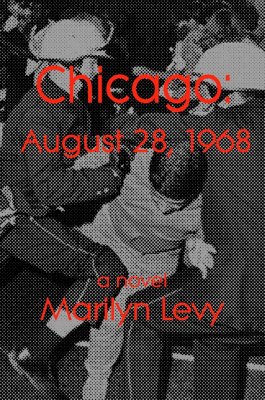
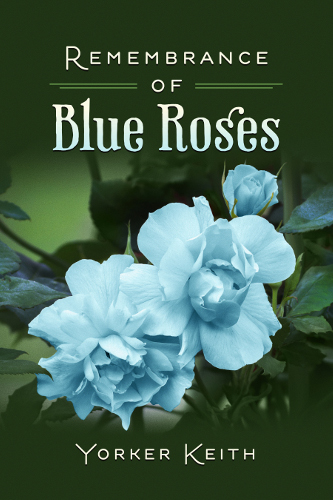
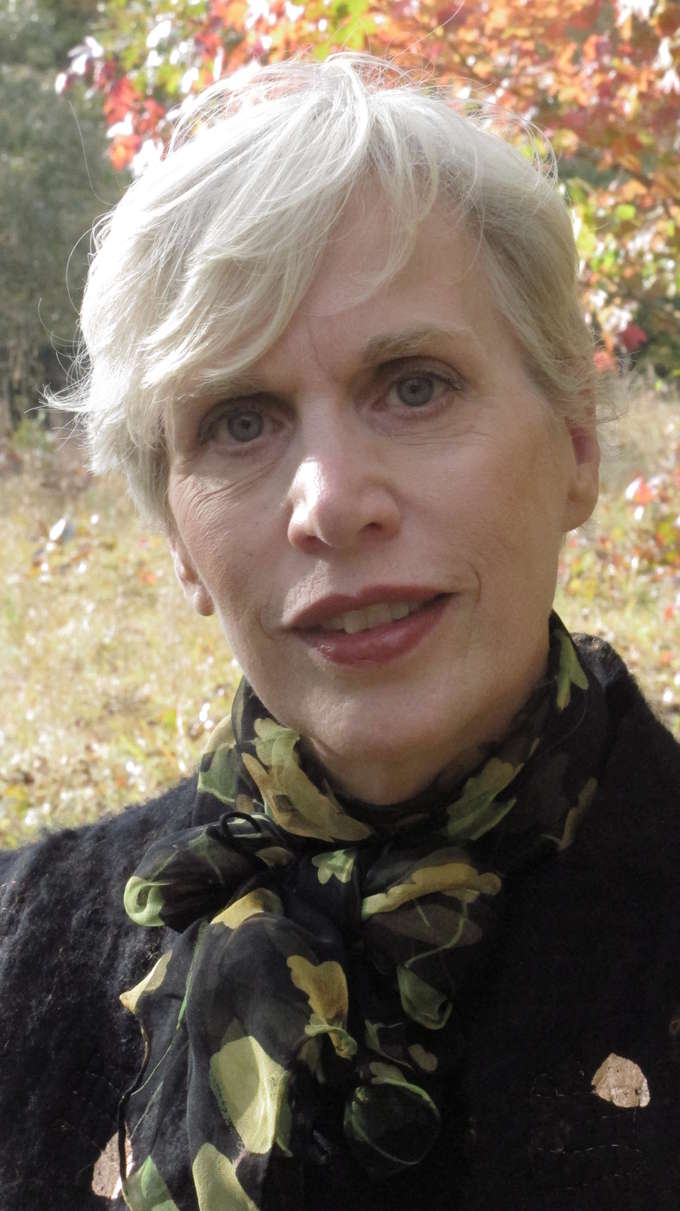
IRENE WEINBERGER BOOKS:
.
A NOTE ABOUT AMAZON.COM
I have a lot of friends and colleagues who really despise Amazon. For a discussion of Amazon and organized labor and small presses, see the comments of Jonathan Greene and others in Issues #97and #98 .
The largest unionized bookstore in America has a webstore at Powells Books. Some people prefer shopping online there to shopping at Amazon.com. An alternative way to reach Powell's site and support the union is via http://www.powellsunion.com. Prices are the same but 10% of your purchase will go to support the union benefit fund.
WHERE TO FIND BOOKS MENTIONED IN THIS NEWSLETTER

If a book discussed in this newsletter has no source mentioned, don’t forget that you may be able to borrow it from your public library as either a hard copy or a digital copy. You may also buy or order from your local independent bookstore. (To find a bricks-and-mortar store, click the "shop indie" logo left).
To buy books online, I often use Bookfinder or Alibris. Bookfinder gives the price with shipping and handling, so you can compare what you’re really going to have to pay.
Another source for used and out-of-print books is All Book Stores. Also consider Paperback Book Swap, a postage-only way to trade books with other readers.
If you are using an electronic reader like Kindle, Nook, or Kobo, don't forget free books at theGutenberg Project—mostly classics, and free, free, free!
Kobobooks.com sells e-books for independent brick-and-mortar bookstores.
RESPONSES TO THIS NEWSLETTER
Please send responses to this newsletter and suggestions directly to Meredith Sue Willis . Unless you instruct otherwise, your responses may be edited for length and published in this newsletter.
BACK ISSUES click here.
LICENSE
n Blevins and Karen Salyer McElmurray, Ohio University Press), I was slain in the spirit by Silas House's "The Forbidden Gods." He engaged me right away with plain but telling detail such as "her stockings produced from a plastic egg." (How did he remember that? I had forgotten those.) Zooming me back to a certain time were other telling details, such as his mother's hands snagging on her hosiery, "causing small tears she repaired with dabs of clear nail polish." All that remained to totally hook me was this metaphor: "…prayers eating their ways through the ceiling ..." His experiences as an Appalachian targeted for prejudice resonated with me: "A whole lot of Americans have bought into the media's portrayal of the rural dialect to equate to ignorance, racism, homophobia, misogyny, outright stupidity."
In the essay "Confessions of a Halfalachian," Mary Crocket Hill writes, "What culture in the current age of hypersensitive political correctness is it still acceptable to mock? Hillbillies, of course. The same person who would never think of making a rude remark about someone else's race or religion has no problem telling a West Virginia joke." Richard Currey offers similar sentiments: " … one way of maintaining Appalachia's status as an impoverished sideshow of American life has been through humor. … it is more than a passing note that Appalachia continues to hold the lead for a demeaning brand of humor where incest, bestiality, sodomy, and single-digit IQs are the core (and apparently only) subjects of humor. … the wider stereotyping of mountain people seems to persist."And then there's the challenge of being an outsider within Appalachian. I expected to read about race, about LGBT issues. But what I hadn't expected was to be thrust into a backwards time warp reading in "Outsider Appalachian" about how Melissa Range grew up being derided for displaying what she was learning, for violating the perceived offense of putting on airs.The book's title is taken from an essay by Jessie Van Eerden. She sets the stage: "I walk till the dogs get mean, far up the road through the little houses in the black trees, past the trailers pinned with lattice and past the cinder block ruins. The dogs come out of the shadows – part pit bull, all mange, different color eyes, no collar, no chain …" Later in the essay, she writes about how her marriage had fallen apart and she found herself writing on a scrap of paper, "Walk till the dogs get mean then walk a little further. …" She adds, "This metaphor is not a neat one. The dogs aren't neat symbols for things that terrify me and clamp me down ..." But I found it a neat metaphor, a call to courage for Appalachians, for anyone facing barriers: Walk a little further.Myxocene by Troy Ernest Hill is a speculative fiction novel set in the very near future, or perhaps even the present. It is a kind of medical/neurological thriller, only instead of the conventional thriller's constant upping of the danger ante (the narrator's daughter, for example, never gets kidnaped by the bad guys), the tone is more wryly humorous than frightening. The bad guys are not entirely bad–indeed, they can be fairly convincing. Part of the pleasure of this novel is following the arguments about how to and whether to stop the coming population growth and concomitant mass suffering from global warming. Should we– rationally speaking– commit suicide as individuals and a species? This would be a wonderful book choice for a book group that likes to talk about ideas.
At the same time, balancing the ideas, is the inner life of the first person narrator, a woman who writes free lance copy for Big Pharma companies. She has been many things in the past, including an actor and director. Presently, she is a single mother who has to deal with a grumpy eleven year old and an irritating evangelical Christian mother who can't bear the narrator's atheism and sexual freedom. My favorite minor character is an ex lover who is an attractive but rather sweetly narcissistic actor who wants to get involved in his daughter's life, but blows his one chance because a casting director from New York shows up at the last minute.The people on the bad guy side are scientists with some experimental pills that can erase traumatic events from our brains and cause us to become frightening clear in our thinking, able, in fact to embrace the idea of suicide as a constructive choice. There is one superb scene towards the end– the classic crisis– when the narrator coolly weighs whether the life of someone she loves should be saved or not–does the person in danger have any redeeming social value, as it were? Chilling and believably done, and very dramatic.Troy Ernest Hill has a way of looking at the world that is sharp, well-observed, and just a fraction off plumb in a way that is endlessly entertaining. See Troy's website athttp://www.troyernesthill.com/are said often to have a shelf life shorter than yogurt.
Rita Quillen writes here about the experience of publishing her novel:"When I came to the heartbreaking conclusion that I was never going to get my novel Hiding Ezra placed with an agent or academic press, I knew that I was undertaking a journey where I'd be a stranger in a strange land– a poet peddling a novel. But I was determined to do all I could to get my story read by as many people as possible, given the very real obstacles I would face." I knew that social media was my only means to find readers. Neither I nor my small publisher could come up with a big advertising budget or afford to buy reviews from all the usual "big league" literary sources. So I used Squarespace (http://www.squarespace.com/) and created a decent website, created an author page on Amazon, created an author Facebook page and a Goodreads author site. I review others' books there and I also blog on Goodreads. I learned to tweet, and have about 1000 followers now!I'm on Instagram as well. I also found that book giveaways are good promotion. I gave away a couple of copies each on Goodreads, Amazon, and on my FB author page."To be effective in using social media to promote your writing or any other creative endeavor, it's got to be more than an electronic billboard. You have to be interesting, engaged, real, funny, humble, grateful—if people like you, feel comfortable, are curious about you, if they sense you are interested and engaged with THEM, they will want to read your writing or listen to your music or whatever it is you do. In other words, you will have to devote some time to it and make yourself available and vulnerable, to some extent. It has worked for me pretty well."See Rita Sims Quillen's website at http://www.ritasimsquillen.com/ .The Residue Years by Mitchell S. Jackson feels like autobiographical fiction even though the words "a novel" are crossed out on the cover. I began less drawn in than admiring of the language and how it enhances and uplifts the energy and poetry of street dialect. I did some light research afterward (reviews in the NYTimes and elsewhere) and found out that the book is, in fact, highly autobiographical, that Jackson did go to jail for selling crack, that his mother was addicted to crack. That he has in recent years visited his old prison (where people he played basket ball with are still incarcerated).
Some of the chapters seemed repetitive in the action covered, as they switch between the main characters, the mother and the son, but the longer I read, the more its music drew me, and its strong structure. It begins with a prologue (Champ in jail, Mom visiting) and then goes back to the time before this crash. It is in many ways a love story between a son and a mother, and between an older brother and his youngers. Champ endangers his love relationship, his freedom, trying to buy a house where his family was once happy, and is swindled by a sleazy white real estate dude.There's one oddity, which is that the book-- the novel-that's-not-a-novel-- has a sadder ending than Jackson's actual life, which is much more productive and happy. Are we expected to know the real life story in order to get the full juice from the book?Interesting in any case, and stunningly rich language.Hiding Ezra by Rita Sims Quillen is another family love story, in this case set among mountain farm people in the early twentiethcentury in southwestern Virginia--Scott County, just over a couple of mountains from where my father's people came from in Lee County. The folkways described--the quilting and selling quilts, the shooting a rabbit and cooking it for lunch on the trail, the descriptions of the landscapes, especially the mountains-- are all beautifully done, but the real strength is the story, which is different from anything I've ever read.
Ezra Teague, the main character, is a griendly, social, well-regarded young man who goes into the army to train to fight in World War I. Pegged as an excellent marksman and possibly slated for special duty, he deserts when his mother dies. His disabled father and widowed sister need his help, so he chooses family over patria, and hides out in the hills, occasionally coming down to chop wood or put a metal patch on the roof of the family home. In return his sister brings him bundles of clothes and other necessities. We learn her sad story of loss, and we meet the woman who loves Ezra.The story covers two years of Ezra's hiding. His choice is largely supported by the community, even though there is a $50 price on his head. How he comes back to join the community is the main thrust of the story.Interestingly, the epilogue is not a happy ending in this book either. Ezra and his beloved marry, but she dies with that brutal suddenness of illness in past centuries. We are thus reminded that this is not romance, but a real story of real people and the real tensions between family loyalty, community loyalty, and relationships to a distant government.Tita by Marie Houzelle is a small delight to read. A reviewer on Goodreads spoke of the sense you have of being drawn into French culture, which I'd agree is a large part of the pleasure-- feeling like you're learning something from the inside out. The main character is the precocious little girl Tita, who lives with her little sister, her frivolous fashionista mother, (who turns out to be afraid of having her lower class roots show), and her father, older and divorced. He worries about his business failing. Meanwhile Tita and her little sister have older half-sibs who live in Paris and are super cool to the little girls, and the older sister makes close friends with the second wife, Tita's mother. The father's family is traditional--Catholic school for the girls even if it isn't a very good school. Real struggles, but all told with a light touch, and très français.
What to say after reading David Copperfield once again? It's the whole Dickens ball of wax: So much sentimental feeling, so much invention, so much vindication of the suffering of young people, the wonderful Phiz illustrations, and so many memorable characters. There are the awful, soul destroying Murdstones, the inimitably 'umble Uriah Heep. Noble Dan'l Peggoty, the awful child-wife Dora, the magnificently dramatic and impecunious Micawbers, David's friend Traddles, the tragically flawed SteerforthI read it on my Kindle (free or almost free!), forgetting for a while it was a triple decker--vast number of pages, over 800. I also had my old hard copy available for the illustrations and a sense of how massive it was. There is also a lot to deplore in Dickens: especially his disapproval of women's sexuality, but I just can't help smiling at the momentum and the cornucopia of people tumbling through the pages.While discussing Dickens, I ought to mention that I also read a book called The Mutual Friend by Frederick Busch, which fictionalizes the last days of Dickens, particularly his famous public Readings, which were extremely lucrative and also devastating to his health. The idea of this book is that the story is being told by DIckens' assistant for the Readings, George Dolby, who is dying of TB in a charity ward, writing his memoirs and drinking too much, thanks to the ministration of an orderly. The NYTimes review agreed with me that it is admirably written but too static-- a series of set pieces. Some of the point of view characters, namely the women but also the attempt at Dickens' own voice seemed to me to be an exercise in high quality padding–padding with carefully written sentences, highly polished, etc. Ellen Ternan, the actor and Dickens' great love, is imagined primarily as a sexual being. This seems to be the specialty of a certain type of male writer: to expropriate the voice of a woman, and then imagine her as wanting the kind of sex the writer likes. An interesting premise, but too writerly for my taste.Star Gate by Andre Norton was my absolute favorite science fiction novel when I was in high school, and this one holds up pretty well, although this one too speeds up the action toward the end.
It is also the novel that my first science fiction novel The City Built of Starships began as a kind of fan fiction response to.(For more on fan fiction, see the link to an interview with NancyKay Shapiro below).I'm now, in official old age, drafting a prequel to The City Built of Starships. Anyhow, I didn't have very high hopes for this re-reading of Star Gate. I was afraid I would find it unbearable, the prose awful, etc.-- and that I would have stolen everything from it! But it turns out to be pretty cleanly written, with the caveat about the final quarter. Also, it is probably at least as much sword and sorcery fantasy as science fiction.I had a wonderful time picking ou the bits I stole. It is a bildungsroman, a young person setting out on a search /quest /adventure, encountering secrets about his origins. There are interesting indigenous life forms. I especially liked the mords, the hero's hunting "pet," a big headed four legged dino-bird, a prototype for my own flying dragon pterodactyl yaegers. There are two suns, the servant class are called "hands." Oh, my novel just flatters the heck out of this one with my little borrowings and imitations..Anyhow, the first three quarters was delightful, and I had forgotten the alternate worlds conceit in which you can conceivably meet a corrupt, hateful version of your own ethical self. I'm happy I still liked it, and also happy to see that while it influenced me a lot, my book was still my own.humorists of the twentieth century, Sir P.G. Wodehouse, and a spoof on the fantasy genre where anything and everything can happen at any given moment and time. Jack is a hungry jackal, booted out of his clan for being lazy and incapable of providing for himself. One night while wandering a patch of forest he accidentally steps on the tail of a tiger that is understandably furious at the jackal. The tiger Ty, confronts the jackal with the latter begging forgiveness. The commotion dies down and they soon go their separate ways. Fate, however, brings them together again and and they soon realize they are both facing a similar predicament – an acute shortage of food. The two strangers soon become comrades and along with Herbert, a cross between a wolf and a pariah dog, set out on a journey through the vast woodland of Baganpore and beyond in search of food. On the way they face perils aplenty in the form of diabolical relatives, cunning scavengers, a mysterious banyan tree and a lake that isn't what it appears to be.
Books for Readers Newsletter by Meredith Sue Willis is licensed under a Creative Commons Attribution-NoDerivs 3.0 Unported License. Permissions beyond the scope of this license may be available at http://www.meredithsuewillis.com. Some individual contributors may have other licenses.
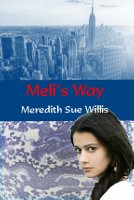







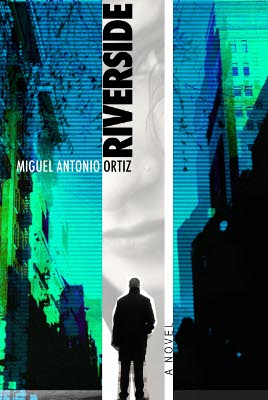
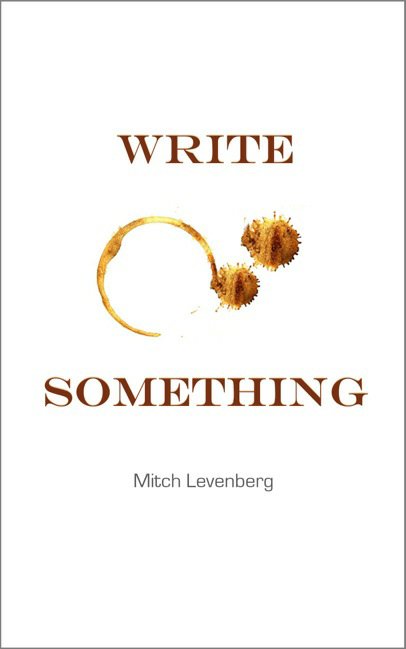
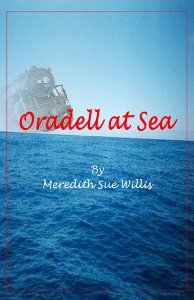

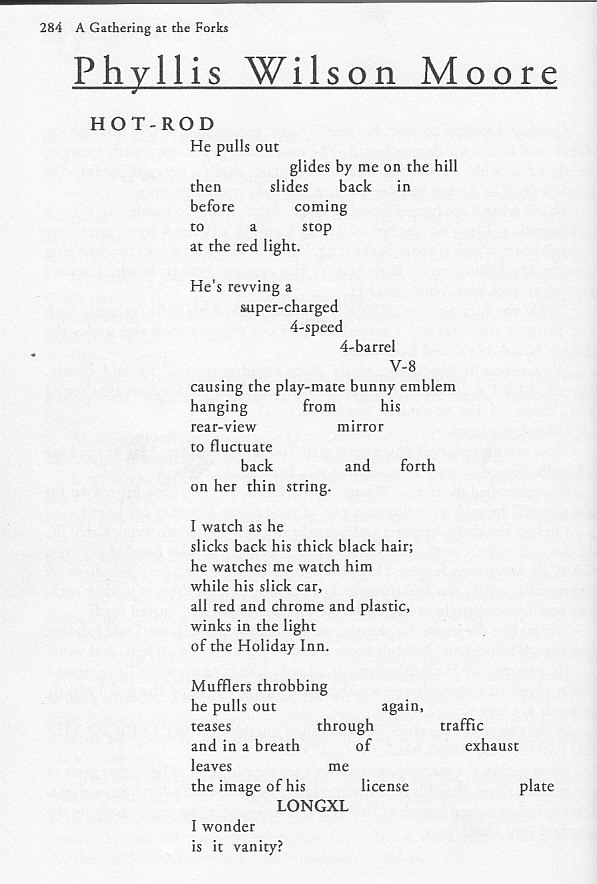

No comments:
Post a Comment